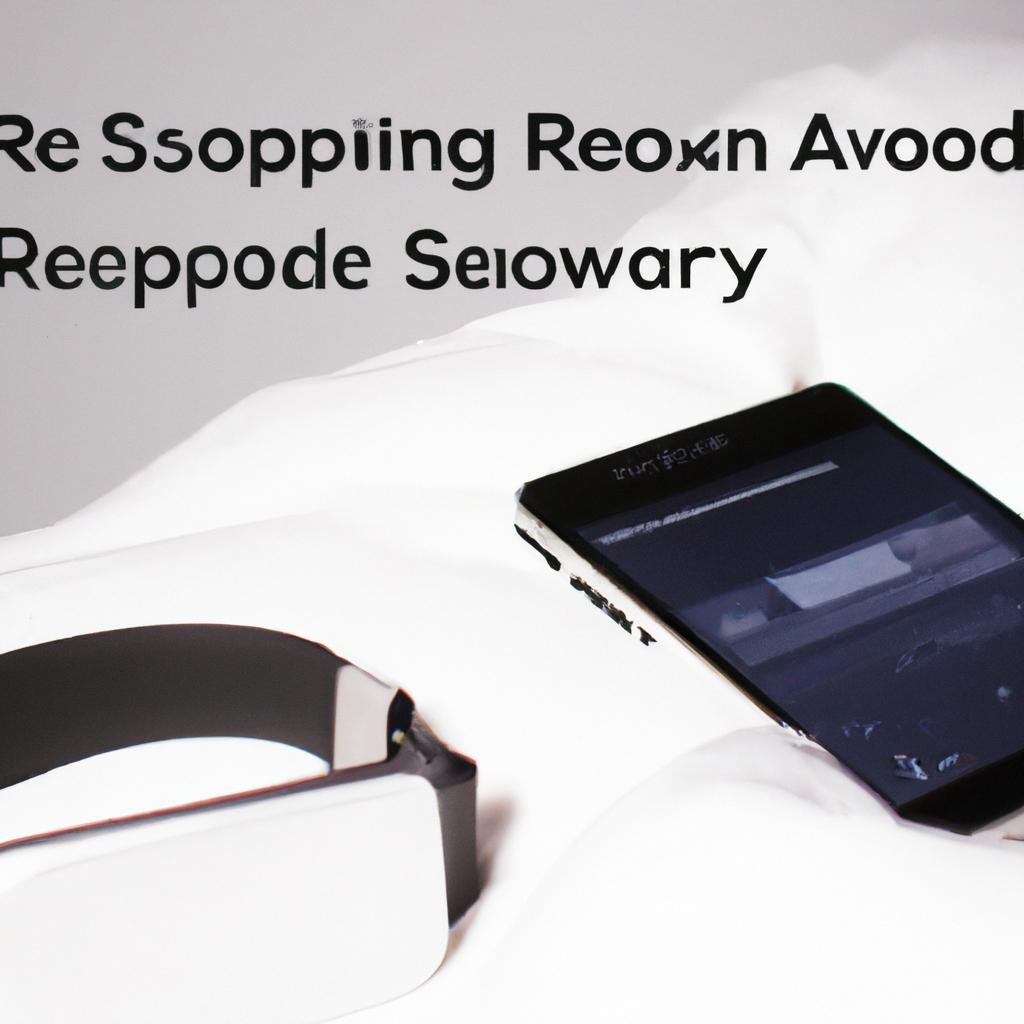**”Wearable Tech for Sleep Optimization: How Smart Devices Can Enhance Recovery and Performance”**
# Wearable Tech for Sleep Optimization: How Smart Devices Can Enhance Recovery and Performance
In our fast-paced world, the importance of sleep cannot be overstated. Quality sleep is vital for recovery, mental clarity, and overall health. With the rise of wearable technology, individuals now have unprecedented access to tools that can help optimize their sleep patterns, leading to improved performance both physically and mentally. From sleep trackers to smart mattresses, these devices are changing how we approach our nightly rest. In this blog post, we will explore various aspects of wearable tech for sleep optimization, including nutrition tips, exercise advice, and the health benefits associated with improved sleep.
## Understanding Wearable Tech for Sleep
Wearable technology encompasses a broad range of devices designed to monitor various aspects of health and fitness. When it comes to sleep, these devices can track metrics such as sleep duration, sleep stages, heart rate variability, and even environmental factors like room temperature and light exposure.
### Types of Wearable Sleep Trackers
1. **Fitness Trackers**: Devices like Fitbit and Garmin monitor your movement and heart rate throughout the day and night, providing insights into your sleep patterns.
2. **Smartwatches**: Options such as the Apple Watch and Samsung Galaxy Watch offer advanced sleep tracking features alongside other health metrics.
3. **Sleep-Specific Devices**: Products like the Oura Ring focus solely on sleep quality and recovery, providing detailed data on sleep cycles and readiness for the day ahead.
4. **Smart Pillows and Mattresses**: These high-tech sleep aids adjust firmness and support based on your sleeping position and provide feedback on your sleep quality.
## Nutrition Tips for Better Sleep
What you consume during the day plays a crucial role in how well you sleep at night. Proper nutrition can enhance the effectiveness of wearable tech in promoting restorative sleep.
### Foods to Incorporate
– **Complex Carbohydrates**: Foods like whole grains, brown rice, and oats can promote sleepiness by increasing the availability of tryptophan, an amino acid that aids in serotonin production.
– **Lean Proteins**: Turkey, chicken, and fish are excellent options that provide tryptophan and help in muscle recovery.
– **Fruits and Vegetables**: Foods rich in antioxidants, like berries and leafy greens, can help combat inflammation and stress, both of which can disrupt sleep.
### Foods to Avoid
– **Caffeine**: Consuming caffeine later in the day can interfere with your ability to fall asleep. Aim to limit caffeine intake after noon.
– **Heavy Meals**: Eating large or rich meals close to bedtime can lead to discomfort and indigestion, preventing restful sleep.
– **Alcohol**: While alcohol may initially make you drowsy, it can disrupt sleep patterns and reduce sleep quality.
## Exercise Advice for Optimal Sleep
Regular physical activity is essential for good health and can significantly impact sleep quality. However, the timing and type of exercise matter when it comes to optimizing sleep.
### Best Practices for Exercise
– **Consistency is Key**: Aim for at least 150 minutes of moderate aerobic exercise each week. Activities like walking, jogging, or cycling can improve sleep quality.
– **Timing Matters**: While morning or afternoon workouts can boost energy levels, avoid vigorous exercise within three hours of bedtime, as it may hinder your ability to fall asleep.
– **Incorporate Relaxation Techniques**: Gentle yoga or stretching before bed can help relax the body and mind, making it easier to transition to sleep.
## Health Benefits of Improved Sleep
Investing time in optimizing your sleep can yield a multitude of health benefits that extend beyond the night’s rest.
### Cognitive Benefits
Quality sleep is linked to improved cognitive function, including enhanced memory, problem-solving skills, and creativity. Wearable tech can help identify sleep disruptions, allowing users to adjust their habits for better cognitive performance.
### Physical Recovery
Sleep is the body’s natural recovery mechanism. Adequate rest aids muscle repair, hormone regulation, and immune function, all of which are crucial for athletes and active individuals. Tracking sleep with wearable devices can help you identify patterns that may be hindering recovery.
### Emotional Well-Being
Lack of sleep can affect mood and emotional stability. Wearable tech can help you pinpoint trends in your sleep that correlate with mood swings or stress levels, enabling you to make lifestyle adjustments that enhance your overall emotional health.
## Conclusion
Wearable technology offers a unique opportunity to enhance sleep quality















Post Comment